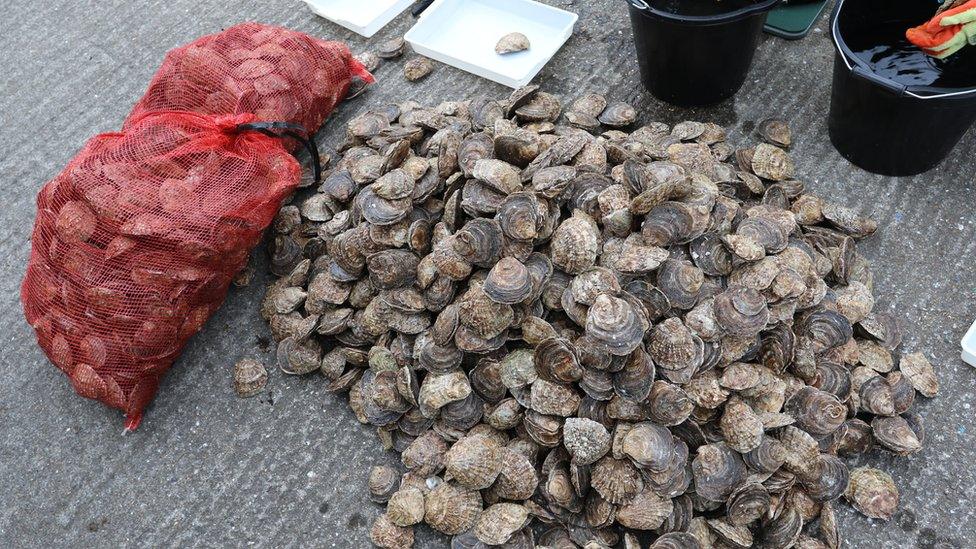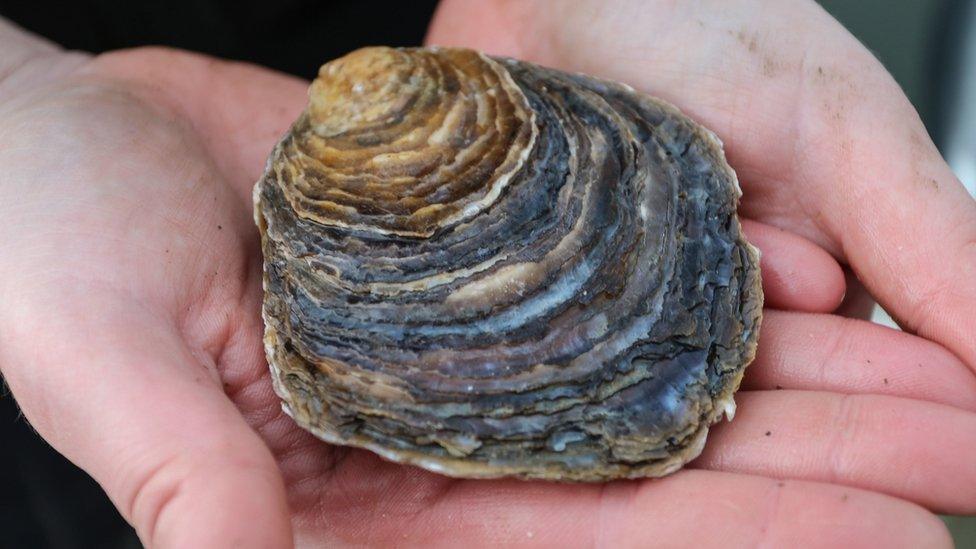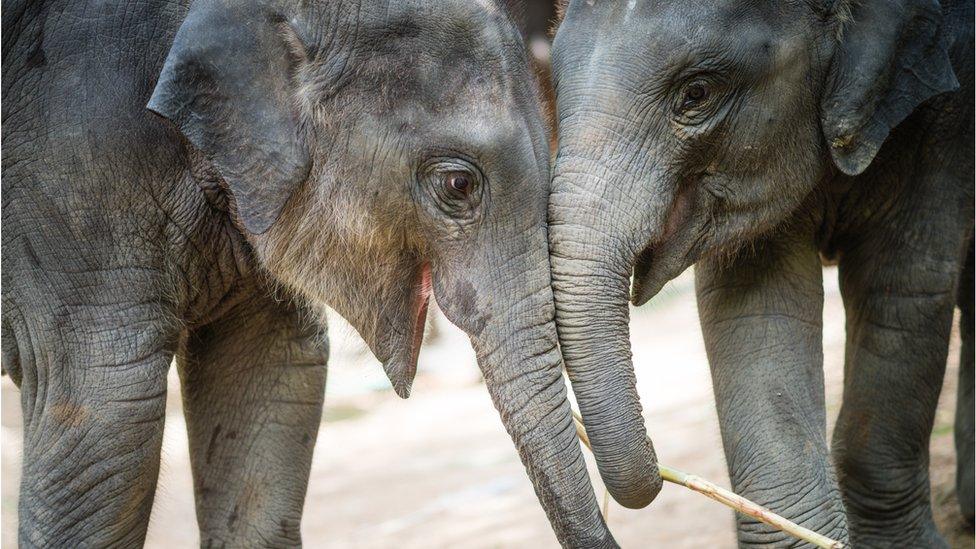Plan to get oysters back from brink of extinction
- Published
- comments

There's a big plan to get oysters back from the brink of extinction in UK waters.
Around 1,300 native oysters have been returned to the River Conwy in North Wales as part of a project called The Wild Oysters Project.
Conwy Bay is just one area that has seen oysters released. A total of 4,000 have been released into six marinas and ports in England, Wales, and Scotland by the Zoological Society of London.
It's hoped it will lead to the molluscs re-populating the UK's coastal seas, having declined by almost 95% since the 1800's due to human activity and coastal pollution.
The oysters, described as "ocean superheroes", play a crucial role in cleaning our seas, filtering water through their gills and helping to remove contaminants.
Here are some amazing facts about oysters.

1. They can switch gender
Oysters change gender at least once in their life.
Unlike humans, oysters are born with organs that allow them to function as both males and females.
So, depending on the situation an oyster can switch genders, allowing them to produce eggs for offspring when they need to.
2. The ultimate water filter
As mentioned above, oysters play a really important role in filtering the ocean and helping to remove contaminants.
A single oyster can filter 50 gallons of water every day, and a healthy one-acre reef filters around 24 million gallons.
That's a whole lot of filtering!
3. They have colourless blood
Did you know that oysters have three hearts which pump colourless blood called hemolymph?
Even their kidneys are clear.
4. Oysters are very good for you
Oysters are one of the most nutritionally well-balanced foods.
They are low in fat, calories and cholesterol, and high in protein, iron, omega-3 fatty acids, calcium, zinc and vitamin C.
- Published4 April 2022

- Published1 April 2021

